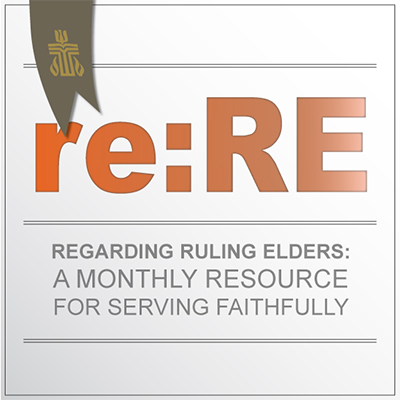Will you be governed by our church’s polity, and will you abide by its discipline? Will you be a friend among your colleagues in ministry, working with them, subject to the ordering of God’s Word and Spirit?
I’ve never been a scrapbooker. My older child got two small photo albums of the early years, and the younger got three-fourths of one. The rest of the pictures are in bins. Someday I might organize them, but probably not. I like the way they are all jumbled together, so that when we pull them out we have to ask ourselves “Who is this?” and “When was that?”
My polity memories are all jumbled together in a mental bin too. When I answered this question at my ordination, I honestly didn’t know what I was agreeing to — not really. I knew enough polity to pass the exam. I knew how to look questions up in the Book of Order. But it’s only in hindsight — by digging through my mental bin of church memories — that I recognize what it looks like to be “governed by our church’s polity” and “abide by its discipline.” Some particular pictures emerge.
I recall a summer class at my childhood church where we learned about the candidates for moderator of the 1987 General Assembly. As a teenager I was beginning to explore a call to ministry. I knew a bit about how my local church was governed, but the General Assembly —a nd the word "polity" — were a mystery to me. Our class straw vote elected Isabel Rogers, who went on to win the actual election. Four years later she would teach me Reformed Theology. I learned from her that as a church we are a covenant community called into being by the grace of God. I began to notice how she and other leaders worked faithfully through the channels of our church government to guide our denomination toward a more just and equitable future. She showed me theology enacted through polity.
Other snapshots come from serving as a commissioner to General Assembly. Being part of my committee’s work to amend an overture that was later passed by the whole body was as thrilling as worshiping among the diversity of our denomination gathered together. Some of the votes didn’t go the way I wished. Watching how our commitment to polity and order help us navigate tricky issues made me glad to be a Presbyterian, even when the voting went late into the night. My former presbytery used to hand out stickers that said "We are Presbytery." Indeed, we are all General Assembly too.
In my bin are warm polity-related memories in churches: enjoying premeeting dinners with elders, serving communion alongside leaders, sharing faith statements together, and seeing big dreams for our congregation come to pass. I also find memories of heated debate, times of disagreement, and a few moments of broken fellowship. Those snapshots are worth keeping because they remind me how fragile peace can be as well as how resilient churches can be. The moments in our life together that ask us to dialogue about what matters most are also the moments that make us who we must be for the future.
I’ve got polity snapshots from plenty of presbytery meetings. Many of them run together like an endless amendment process, but some stand out. Matters of discipline involving clergy, committees, and councils are always difficult. Recalling that "discipline" and "disciple" share a Latin root helps me keep my vow to abide by the instruction of our shared polity.
Throughout my bin are pictures of friends who are colleagues in ministry. These are friendships forged through study, prayer and mission. We’ve sat on hard church pews together, shared creative ideas and institutional problems together, written notes, texts, reports, and curriculum together, and sweated in meetings and on mission sites together. We’ve shown up for one another in times of joy and sorrow, holding on to what unites us (including our commitment to church polity) rather than stewing over what divides us. Being a friend in ministry means we value and nurture our common life as children of God and disciples of Jesus Christ.
What a question this one is! It covers the wide range of church experiences, from difficult votes to treasured friends, from hard choices in the Rules of Discipline to trust in God’s Word and Spirit. Saying “I will” means saving room in your bin for memorable snapshots to come.
For Reflection:
- What snapshots are in your polity bin? What moments stand out for you when a commitment to shared leadership and good order allowed the presence of God to be known?
- Who are the friends and colleagues that accompany you in your ministry in the church? How can you nurture those friendships?
- How do the resources in Coming Alive in Christ deepen your understanding of this ordination question?
Rev. Julie Coffman Hester is a pastor and writer in the Presbytery of Western North Carolina. She is inspired by faithful ruling elders, like her parents, and the remarkable disciples with whom she has served in local congregations.
This article is the fifth in a 12-part series focusing on the constitutional questions that church leaders answer upon their ordination and installation, using some of the materials from "Coming Alive in Christ: Training for PC(USA) Ruling Elders and Deacons Based on the Constitutional Questions," which is available through Equip, the church’s online training platform.

